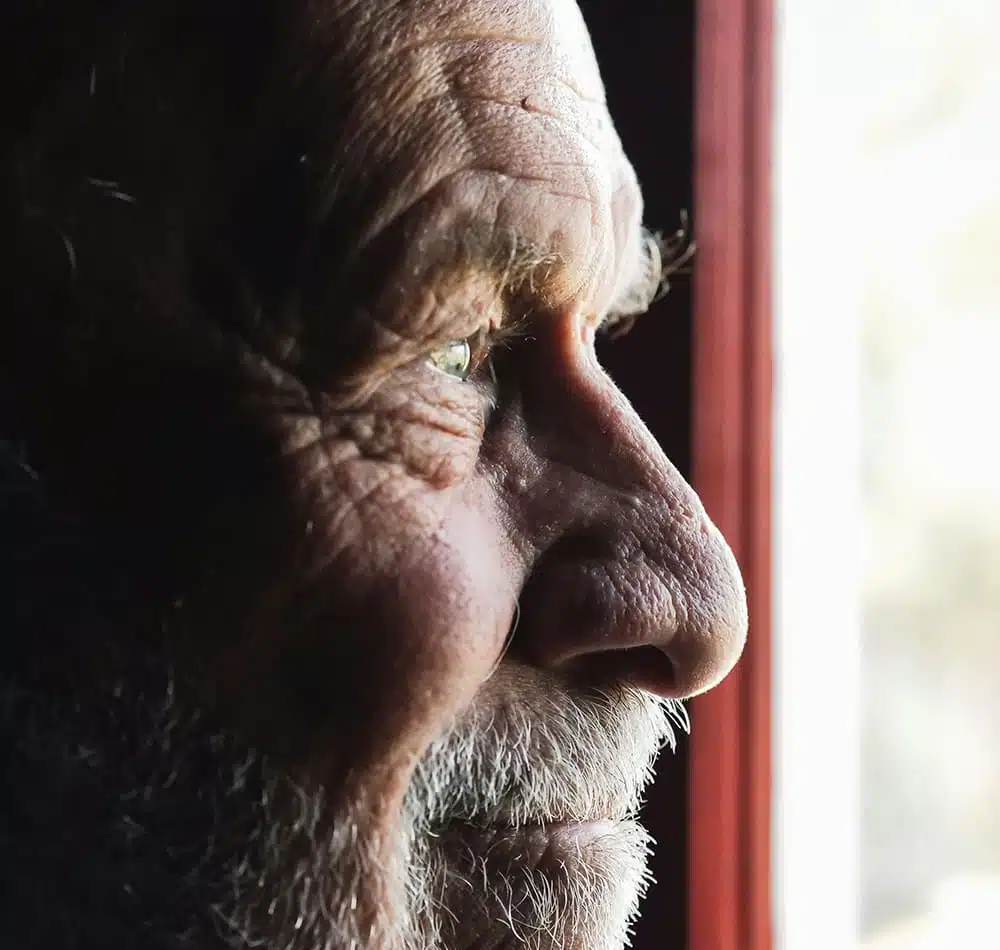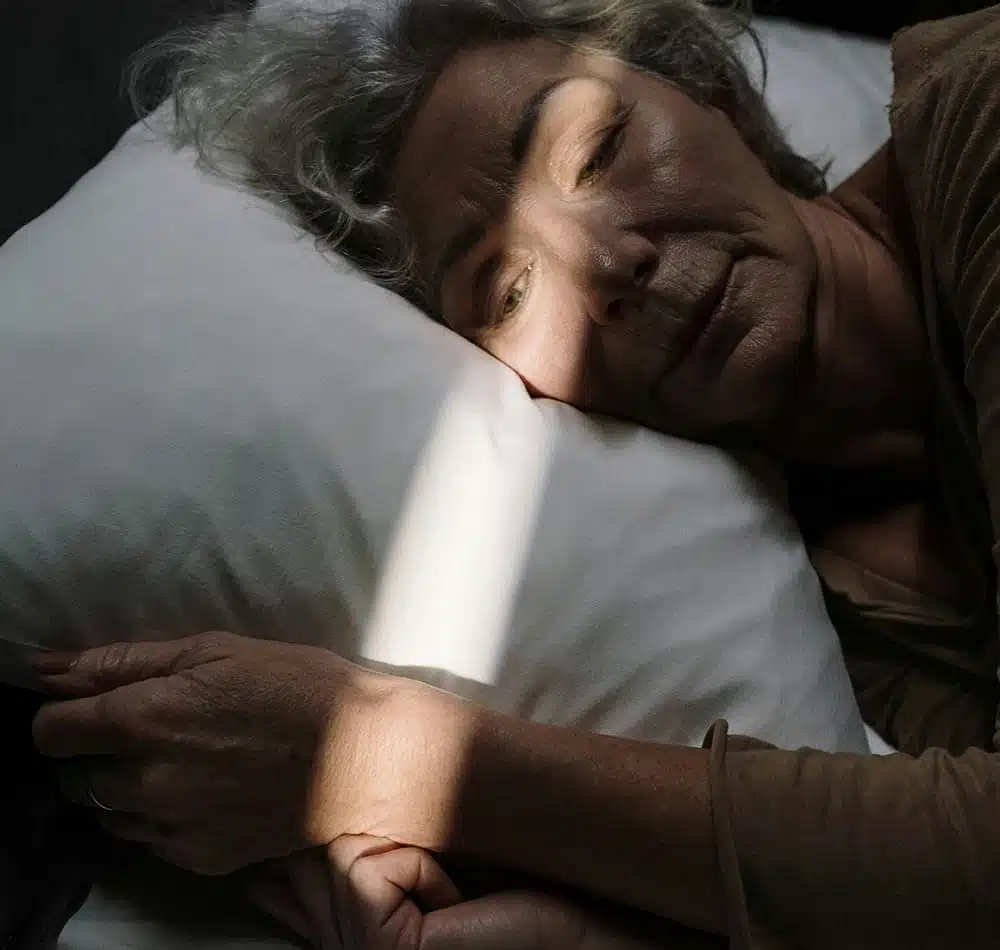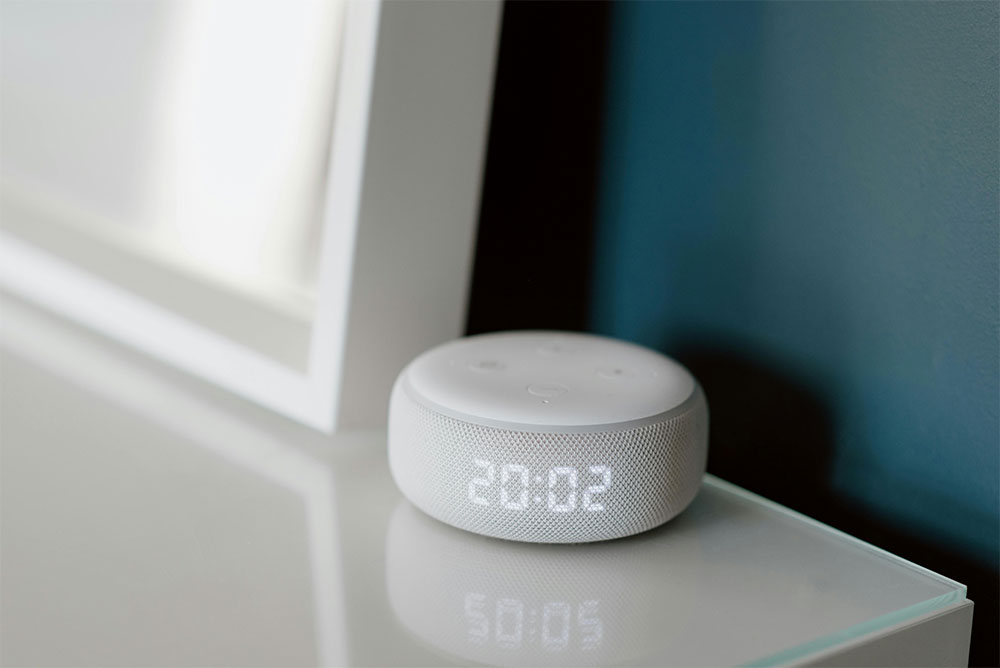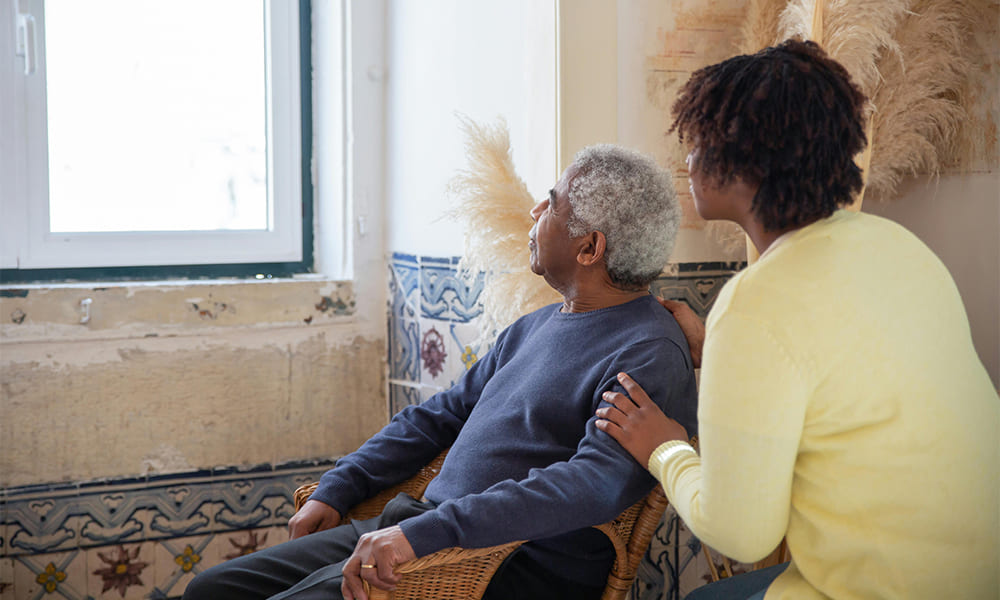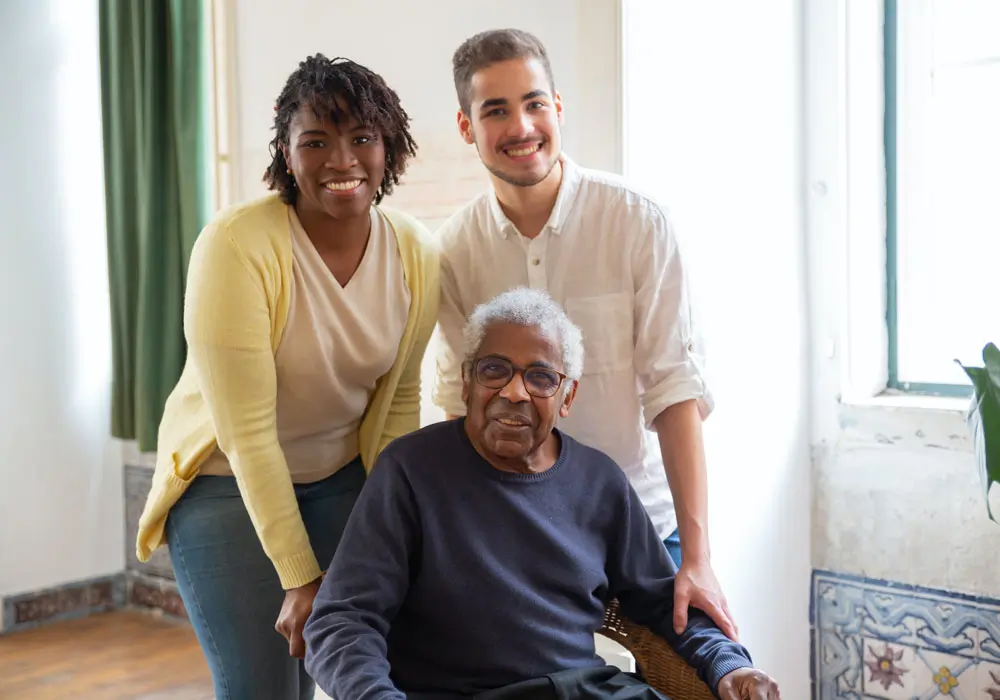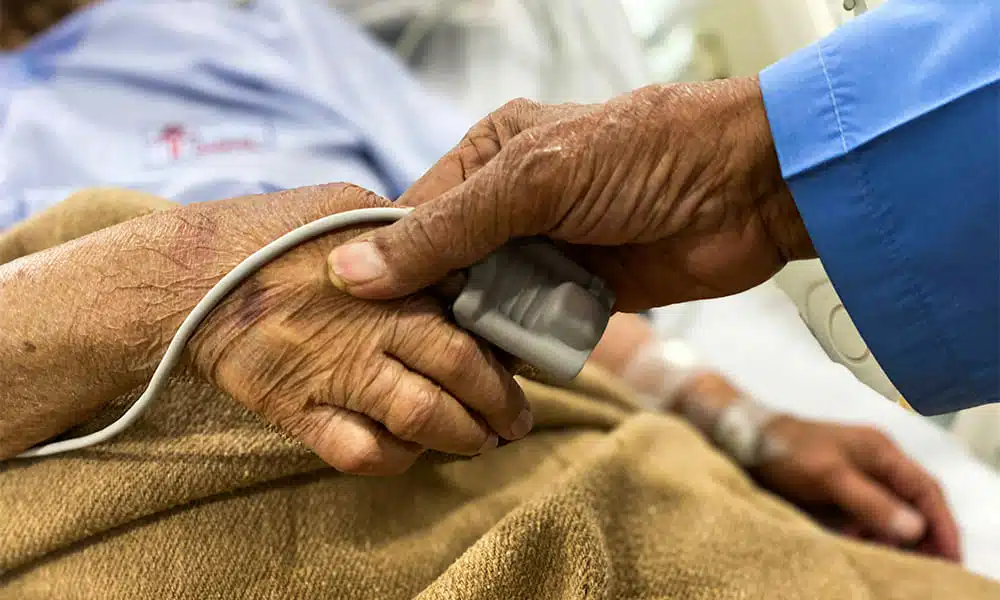
Christopher Ravn
Key Takeaways
1. Forgetting family members typically occurs in the later stages of dementia, when cognitive decline is severe.
2. Stage 7 Alzheimer's is the most severe stage, characterized by complete dependence on caregivers and a loss of most cognitive and physical abilities.
3. Short-term memory loss is often one of the earliest signs of dementia, but it worsens as the disease progresses, eventually impacting long-term memory as well.
Table of Contents
1. At What Stage Do Dementia Patients Forget Family Members
2. What Happens in Stage 7 of Dementia?
3. What to Expect in Stage 7 Dementia
4. Communication Techniques With Dementia Patients
5. Strategies To Help Patients Recognize Family Members
6. What Is The Stage 7 Dementia Scale?
7. How Bad Is Stage 7 Alzheimer's?
8. What Stage Of Dementia Is a Very Severe Decline?
9. What Stage Of Dementia Is Short-Term Memory Loss?
10. What Does Stage 6 Dementia Look Like?
11. Frequently Asked Questions About At What Stage Do Dementia Patients Forget Family Members?
At What Stage Do Dementia Patients Forget Family Members
Dementia is a neurological disorder that affects the memory, thinking, and behavior of those who are 60 years of age and older. The decline is seen in one’s memory, language, and changes in personality. These patients forget familiar faces, events, and their own identities.
In later stages, dementia patients forget their family members, eat, drink, or other daily activities. When they get to the advanced stages, they may forget their name and their family identity.
This has an emotional impact on both the patient and the family. The patient may feel confused, frustrated, and anxious as they are unable to recognize those who are familiar to them. Moreover, family members may also experience guilt and sadness as they see their loved ones deteriorate and forget who they are.
What Happens in Stage 7 of Dementia?
- Severe cognitive impairment
- Unable to perform daily activities
- Inability to coordinate, balance, or move
- Increased risk of infections, dehydration, and malnutrition.
- Inability to speak, understand, and communicate with others
- Feeling agitated, restless, and aggressive
- Issues with bladder and bowel movement
- Incontinence
What Does Stage 7 Dementia Include?
- Patients may not be able to communicate or respond effectively.
- May have issues performing activities such as dressing, eating, and grooming
- Issues with incontinence
- May have issues with eating and swallowing, which causes malnutrition
- May experience pain such as arthritis and pressure sores
- Sleep disturbances lead to fatigue.
- They may repeat movements by continuously pacing, rocking, or fidgeting.
- Exhibit behaviors such as crying, agitation, or screaming
- Difficulty initiating or maintaining a conversation
- May have mood swings, depression, or anxiety.
- Urinary issues
- May not be able to recognize names, people, and places
- May have issues with standing, walking, or moving.
- Susceptible to infection due to a lack of hygiene.
What to Expect in Stage 7 Dementia
- Bathing, dressing, grooming, and using the washroom.
- Eating, swallowing, and even communicating.
- May be in a wheelchair or bedridden and require transformations and mobility.
- Significant brain impairment, making it challenging to use the phone and follow instructions.
- May have issues expressing themselves, responding to a person or even understanding those around them.
- Issues with expressing themselves or responding to any questions.
- Round-the-clock supervision for personal care, mobility, and even preparing meals.
- May require nursing care such as medication management, procedures, and pain care.
- Assistance with bathing, dressing, and using the washroom.
- Emotional support to manage anxiety, frustration, and fear.
Psychological Impact on Caregivers
- Feelings of loss and grief of the person they once knew.
- Caregivers struggle to have a connection with their loved ones and thus isolate themselves.
- May feel overwhelmed and powerless
- May experience guilt and shame because they are not able to do anything about the situation.
- Breaks and respite care for caregivers and reduce burnout.
- Joining a support group to provide a sense of community.
- Counseling sessions to help process emotions and coping strategies.
- Provide caregiving with education and training.
- Help with the household chores
- Needing to feel validated
- Emotional validation and acknowledging their feelings
- Prioritize self-care and engage in healthy activities.
Family Support Systems
Family support is important in managing the various challenges and in this sense, provides emotional, practical, and financial assistance. It helps patients cope with stress, anxiety, and other emotional issues.
- Engaging in family therapy
- Joining either online or offline support groups
- Provide caregiving for a family member
- Provide practical support and nourishment.
We Believe Prioritizing Brain Health Enhances Your Quality Of Life
Get to know our team, our mission and how our EVY LIGHT® can provide you and your loved ones with a fuller life, letting you breathe a little easier.
Communication Techniques With Dementia Patients
- Validate the patient’s feelings
- Use nonverbal cues such as body language and facial expression.
- Use clear and simple language
- Show empathy towards their feelings
- Treat each other with respect and patience
- Avoid arguing with and correcting the dementia patient.
Effective Communication Strategies
- Repeat what the person said
- Reflect on what you have heard
- Clarify and misunderstandings
- Encourage the person to share their thoughts and opinions
Adapting Communication As Dementia Progresses
- Early stage: Dementia patient may still be able to communicate effectively
- Middle stages: The patient has difficulty using the right words, understanding conversation, and handling complex information.
- Late stages: Where the patient needs to rely on body language, facial expressions, and gestures.
- Avoid complex jargon or sentences
- Repeat what the person with dementia said
- Use non-verbal cues
- Emphasize important words and phrases
- Utilize visual aids like diagrams and pictures
- Use gestures and movement
- Listen actively and respond in a respectful manner
Strategies To Help Patients Recognize Family Members
Strategies to help patients recognize family members include providing open and honest communication, encouraging patients to talk about their feelings, using nonverbal cues like touch and eye contact, engaging in small talk, and supporting decision-making.
Using Photographs And Mementos
Photographs and mementos are crucial methods to help dementia patients connect with their memories and invoke a sense of identity. They bring up emotions and reassure comfort. Photographs and mementos aid in recognition by triggering memories, providing context, creating a sense of familiarity and reducing anxiety and agitation.
To use these items effectively, one needs to ensure that the photographs are meaningful, are displayed in a visible area, used in a conversation, and keep changing and making them fresh.
Routine And Repetition
Routine and repetition are important because they help to consolidate short-term and long-term memory, may help the brain recognize patterns, and allow our bodies to perform tasks without giving them thought. It is also important to consider brain exercises for seniors.
Specific routines that may help are using spaced repetition, flashcards, repetition using the five senses, establishing daily routines such as meditation and exercise, and using visual aids such as photographs and images.
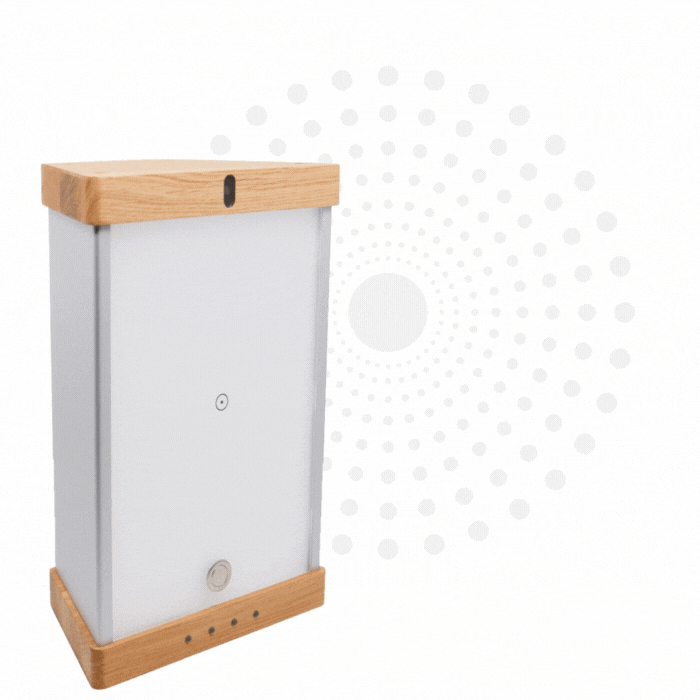
Enhance your brain performance through the power of light.
Comfortable and easy to use 40Hz light therapy to support and improve your brain function.
View Our LightWhat Is The Stage 7 Dementia Scale?
- Clinical Dementia Rating (CDR), which uses a 7-point scale to assess cognitive function
- Global Deterioration Scale (GDS) uses a 7-assessment scale to categorize patients by their cognitive decline rate
- 6-CIT uses a scale to assess the severity of dementia.

How Bad Is Stage 7 Alzheimer's?
Stage 7 Alzheimer’s means that the patients have lost independence and their daily lives are impacted. At this juncture, the patient has lost physical and cognitive abilities and thus needs round-the-clock supervision.
Symptoms are that the patient is unable to remember people, places, events, and communication issues, is unable to perform simple, violent mood swings, and has difficulty bathing, sitting, and walking. At this point, it is important to understand how to deal with fixation in dementia
Comparatively, a stage 6 dementia patient struggles to perform some daily tasks but with assistance. The patient is still able to speak but has difficulty and may show signs of mood swings and agitation. Stage 5 means that the patient can perform daily tasks and still be able to communicate.
What Stage Of Dementia Is a Very Severe Decline?
- Unable to dress, groom, and feed themselves
- Unable to communicate or have limited gestures
- Unable to move and may require full-time care and support
- May experience difficulty in swallowing and drinking
- Unresponsive to their environment
- May exhibit aggressive behavior, agitation, or other forms of disturbance.
What Stage Of Dementia Is Short-Term Memory Loss?
- Forgetting recent events or conversations
- Misplacing objects or items
- Difficulty following instructions or learning new information
- Trouble recalling phone numbers, appointments, or schedules
- Forgetting where they placed their keys, wallet, or other personal items
- Unable to dress, groom, and feed themselves
- Unable to communicate or have limited gestures
- Unable to move and may require full-time care and support
- May experience difficulty in swallowing and drinking
- Unresponsive to their environment
- May exhibit aggressive behavior, agitation, or other forms of disturbance.
- Difficulty recalling memories from years ago
- Forgetting important dates, events, or milestones
- Struggling to recognize familiar faces or places
- Losing the ability to recall personal history or past experiences
What Does Stage 6 Dementia Look Like?
Stage 6 dementia looks like moderately severe Alzheimer’s, where there is a cognitive decline in a patient’s daily functioning. At this point, the patient may need help with their daily activities, such as bathing, eating, and dressing.
The symptoms of stage 6 dementia are a severe decline in memory, judgment, and problem-solving skills; an inability to bathe and dress; an inability to communicate effectively; mood swings; issues sleeping; and physical changes such as walking and incontinence.
Stage 7, on the other hand, requires 24-hour care and supervision, is unable to communicate, has severe behavioral changes, and is in physical decline.
Learn What Others Have Experienced with EVY Light
See how others have achieved a sharper mind by activating their gamma brainwaves in combination with maintaining a healthy lifestyle.
Frequently Asked Questions About At What Stage Do Dementia Patients Forget Family Members?
What Stage Of Dementia Is Short-Term Memory Loss?
- Forgetting recent events or conversations
- Misplacing objects or items
- Difficulty following instructions or learning new information
- Trouble recalling phone numbers, appointments, or schedules
- Forgetting where they placed their keys, wallet, or other personal items
How Bad Is Stage 7 Alzheimer's?
Stage 7 Alzheimer’s means that the patients have lost independence and their daily lives are impacted. At this juncture, the patient has lost physical and cognitive abilities and thus needs round-the-clock supervision. Symptoms are that the patient is unable to remember people, places, events, and communication issues, is unable to perform simple, violent mood swings, and has difficulty bathing, sitting, and walking.




